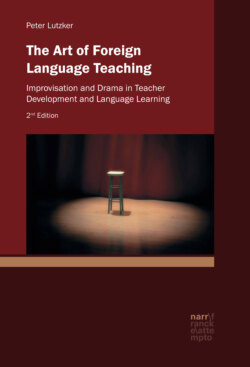Читать книгу The Art of Foreign Language Teaching - Peter Lutzker - Страница 21
На сайте Литреса книга снята с продажи.
1.2.10 The Teacher as Artist: Later Developments in Germany
ОглавлениеBetween the years 1933–45, conflicts between the advocates of a Künsterpädagogik and the Lernschule were fully eclipsed by the dominant Nazi educational ideology which adopted only those elements which served its own purposes. After WW II elements of the ideas of the reform movements in regard to the concept of teaching as an art can be found in the writings of a number of prominent educational reformers including Wilhelm Flitner, Friedrich Copei, Heinrich Roth, Martin Wagenschein and Eduard Spranger. In his historical overview of this tradition, Didaktik als Lehrkunst published in 1982, Baldur Kozdon views Gottfried Hausmann’s Didaktik als Dramaturgie des Unterrichts (1959) as the last major work in the long tradition of viewing teaching in an artistic context; a tradition whose heyday had been reached in the reform movements at the beginning of the century.
Hausmann’s wide-ranging discussion of connections between the historical development of dramaturgical principles in theatre and parallel developments in the history of didactics certainly stands as a unique contribution to this field. Moreover, his extensive discussion of the relevance of key dramaturgical principles for establishing an artistic methodology of teaching must also be seen as constituting one of the most extensive treatments of this theme. However, in the context of a period in which this approach was no longer considered relevant, his work does not appear to have had any significant effect/s on the educational thinking or discussions of that time, or later ones.
In recent decades, educators such as Horst Rumpf, Hartmut von Hentig, Christian Rittelmeyer and Gert Biesta have offered visions of teaching and learning which offer a striking contrast to the paradigm of viewing education as a ‘hard science’ and which include a number of elements relevant to the concept of teaching as an art.78 In the area of foreign language teaching, Hans Hunfeld and Harald Weinrich stand out as the most prominent representatives of an alternative approach deeply rooted in a sceptical hermeneutic tradition, in which the experience of the richness and ambiguities of literature in a foreign language are accorded a central role.79
